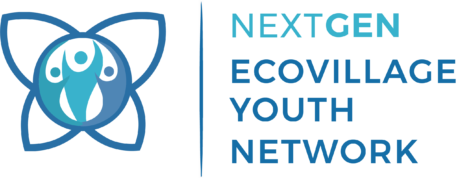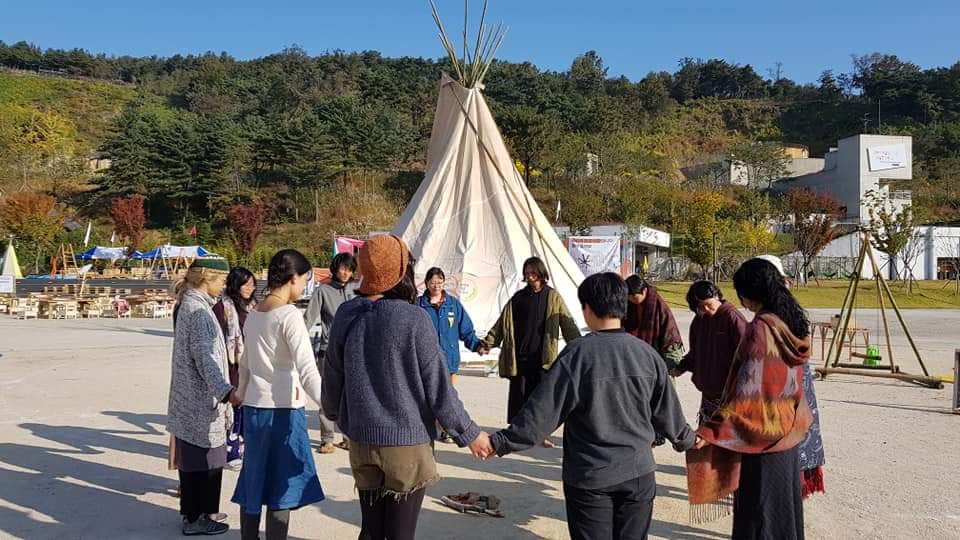
Our movement
Understand the world of Regeneration and Ecovillages!
What is Regeneration?
Regeneration is a worldwide movement of people who take action in RENEWAL, RESTORATION, BIODIVERSITY, HEALING, CONSCIOUS LIVING, AND RESILIENCE. As a holistic movement that involves all aspects of life from the way we live to how we relate and coexist with ourselves, the Earth and each other, Regeneration is key when it comes to tackling the systemic crisis we are currently living in, because it’s core principle is that we as humans must align to the natural Earth’s model again. Nature creates conditions for life to thrive, and by tapping into nature’s wisdom and infinite possibilities, this movement can help bring solutions to humanity’s biggest problems related to the environment and its societal byproducts.
With a mix of theories and practical tools like Permaculture, Agroforestry, Bioconstruction, Low Technology, and Community Living, along with a myriad of other practices for creating vibrant Local and Circular Economies, working with Sociocracy, Rights of Nature, Decolonialiaty, Non-Violent Communication, the Circle Way and Zegg Forum, applying Inner, Social and Environmental Ecologies and many more, Regeneration envisions a big paradigm shift from the model we currently utilize worldwide to one which sees the Earth as a living being that is interconnected to all of which exists within her.
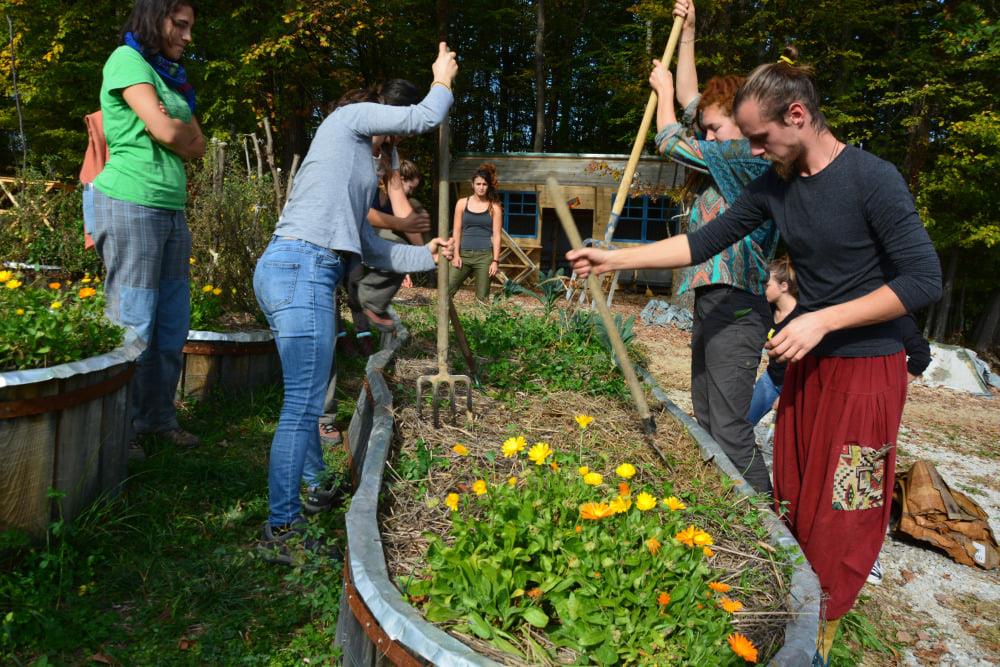
What is our model now?
The vast majority of the world today relies on the degenerative model, which tells us that there is no other way to have our human needs met other than by exploiting, fighting against, and dominating Nature, instead of living in harmony with it. With this in mind, the Regeneration Movement believes that we must go beyond sustainability in order to truly overcome this destructive model, which lies at the root cause of the climate, ecological, and social emergency we face today.
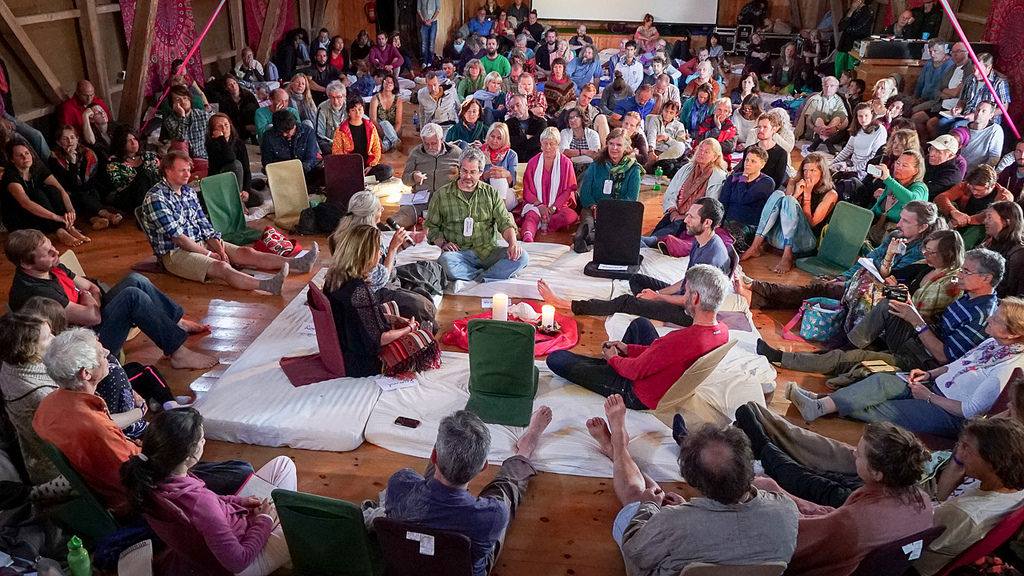
Why not just sustainability?
According to the Cambridge dictionary, the word sustainability means:
- the quality of being able to continue over a period of time;
- the quality of causing little or no damage to the environment and therefore able to continue for a long time.
It is very clear that sustainability means maintenance. The whole idea of being sustainable is about continuing to take resources from Earth to produce goods and bring economic growth in a capitalist model, but doing it in a way that won’t cause too much damage.
The sustainability paradigm was created as a reaction to the degenerative model explained above. After years of exploitative practices like monocultures, extraction of minerals etc, humans started to realize that resources aren’t actually infinite. This was only recognized in the XX century and the idea of maintaining a “healthy environment” within the continuation of the same global economic structure was only really established in the International System in 1980’s, with the Brundtland Conference. It became obvious to the world’s leaders that, to be able to continue with the same capitalist model, there was a need to cause less harm to the Earth.
Therefore, sustainability is not a solution, it is a palliative measure that does not replace what is taken out of Earth. That is why Regeneration is key to a truly healthy and harmonious future on this planet. While sustainability is important and can bring awareness and a better relationship with Mother Earth, it does nothing in an already degraded environment, and it certainly does not solve the structural roots of the problem. In fact, it can actually enable them to continue (the roots being essentially the exploitation of Earth to fuel an extractivist, capitalist, and colonial system).
We at NextGEN believe in a future where humans recognize they are part of the Earth and live in harmony with her, respecting her and her rights. We believe it is possible to switch to a Regenerative model worldwide, which completely revolutionizes the way we humans coexist with Nature, ourselves and each other.
What is an Ecovillage?
An ecovillage is an intentional, traditional or urban community that is consciously designed through locally owned participatory processes in all four dimensions of sustainability (social, culture, ecology and economy) to regenerate social and natural environments. While there is no one way of being an ecovillage, there are three core practices shared by all:
- Being rooted in local participatory processes
- Integrating social, cultural, economic and ecological dimensions in a whole systems approach to regeneration
- Actively restoring and regenerating their social and natural environments
*Definition taken from GEN website
We believe in finding solutions that are driven by love, not profit. Actions in ecovillages and communities are always looking to find ways in which we live a high quality life with low impact while also healing and regenerating Earth and society. We’re all about making important lifestyle changes like growing and eating healthy food, using renewable energy resources, recycling, reusing and upcycling, gifting, sharing, or reaching out to a neighbor, all of which in time can lead to bigger structural changes like alternative economic systems.
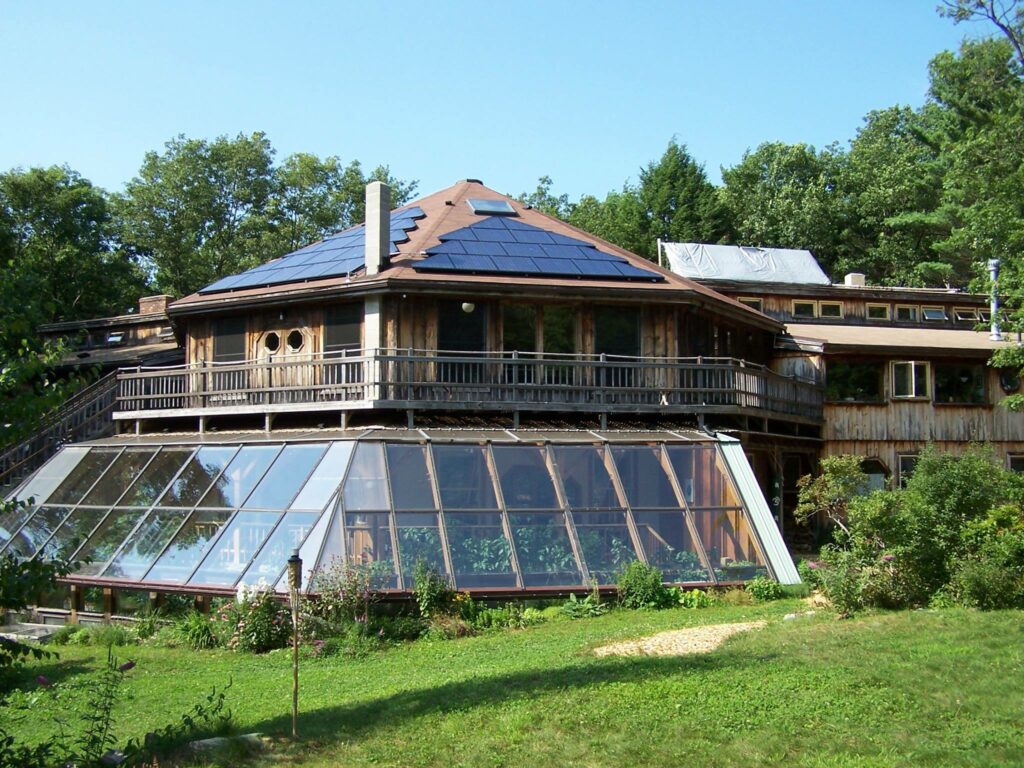
What ecovillages are not
- An Ecovillage is not a particular outcome, but an ongoing process. Each ecovillage is a living and learning centre for a regenerative future, a place of continuous exploration.
- Ecovillages are not designed by outside developers, architects or experts, but by communities themselves.
- Ecovillages do not focus solely on ecology, even though many ecovillages start with a strong focus on the ecological dimension. Preservation and restoration of nature can only succeed when the social fabric is strong, cultural heritage is celebrated and people find ways to marry their love for the planet with their need to make a living. Experience has shown that, given enough time, ecovillages will naturally develop to encompass all four dimensions of regeneration.
- Ecovillages are not islands for the rich and middle class. Some of the most vulnerable and marginalized communities in the ‘Global South’ and communities with the lowest recorded eco-footprints in the ‘Global North’ are engaged in GEN. Ecovillages in the ‘North’ typically focus on simplifying lifestyles to bring their ecological impacts below local and global carrying capacities. They have some of the lowest recorded eco-footprints with respect to the national averages in their countries. Ecovillages in the ‘South’ typically focus on preserving precious low-impact traditions, while improving living standards.
- Communities do not need to call themselves an ‘Ecovillage’ in order to be recognised by GEN.
At NextGEN, we have many young people also engaging in Ecovillage projects, which are local initiatives that inspire, educate and foster ecovillage lifestyles, without constituting a certain number of people living together as a community. Some examples of ecovillage projects can be educational centres, green schools, permaculture centres and agro-ecological farms, transition initiatives, social and community enterprises, online communities, etc.
Now that you understand our movement, we invite you to explore our worldwide network and our different projects! We hope to inspire you into acting towards a regenerative future!
